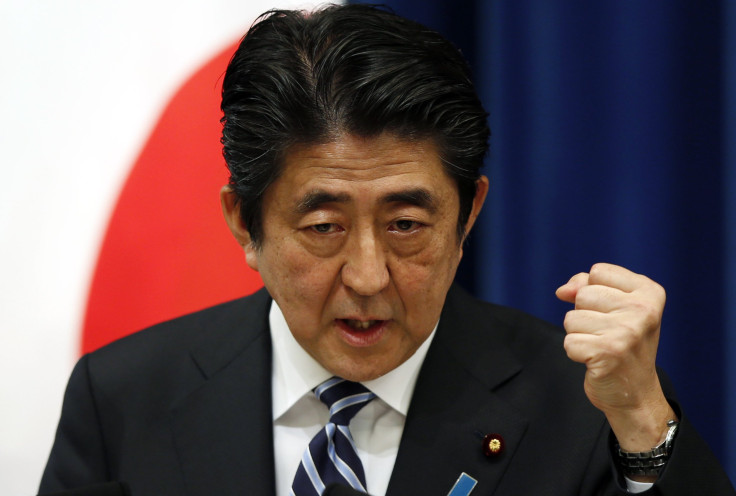Japanese Election Results 2014: Officially A Huge Win For Shinzo Abe's Liberal Democratic Party

Japanese voters effectively put their stamp of approval on so-called Abenomics Sunday, propelling Prime Minister Shinzo Abe’s Liberal Democratic Party to a rout in snap parliamentary elections. The LDP and its junior partner, the Komeito party, were assured more than the 317 seats in the 475-member lower house required to maintain a two-thirds supermajority there, according to Reuters, which cited the country’s public broadcaster NHK.
The White House congratulated Abe and his party on their victory with a statement on behalf of President Barack Obama:
“The U.S.-Japan alliance is the cornerstone of peace and prosperity in the Asia-Pacific. We appreciate Prime Minister Abe’s strong leadership on a wide range of regional and global issues, from typhoon relief in the Philippines, to the Ebola response, to the international fight against [the Islamic State group]. The United States look forwards [sic] to deepening our close alliance cooperation with the government and people of Japan to promote global and regional security and prosperity, and bilateral cooperation on defense guidelines revision, [Trans-Pacific Partnership] and maritime security.”
Abe called for the snap parliamentary elections after he dissolving the lower house of the legislature last month. The polling was seen largely as a referendum on the prime minister’s economic reform policies and a test of strength. Voters showed they are willing to stick with him, despite an economy that has contracted for two consecutive quarters.
“The election will be held to ask the public whether we will [move] forward with Abenomics or end it,” CNN quoted Abe as saying last month. He also said holding these elections would vindicate his decision to implement a controversial consumption-tax hike. Abe plans to increase his country’s consumption-tax rate to 10 percent in 2017 from 8 percent at present. The rate was 5 percent as recently as March.
Observers warned the results of the elections may not be an endorsement of Abe’s party, so much as proof of widespread dissatisfaction with the opposition, especially given the low turnout by voters. The LDP benefitted from the fact that its rival Democratic Party of Japan, or DPJ, put forward only 198 candidates for the 475 contested parliamentary seats, which all but assured a victory for the ruling party, as the Public Broadcasting Service reported.
“This is not so much a vote of confidence in Abe and the LDP as a vote of no-confidence in the political opposition,” Gerald L. Curtis, a professor of political science at Columbia University, told Reuters.
The DPJ was in power from 2009 to 2012, but the party was ousted after running through three prime ministers in as many years and facing voter dissatisfaction over its handling of the crisis caused by the 2011 Great East Japan Earthquake and tsunami that resulted in a nuclear meltdown at a power plant in Fukushima.
© Copyright IBTimes 2024. All rights reserved.






















